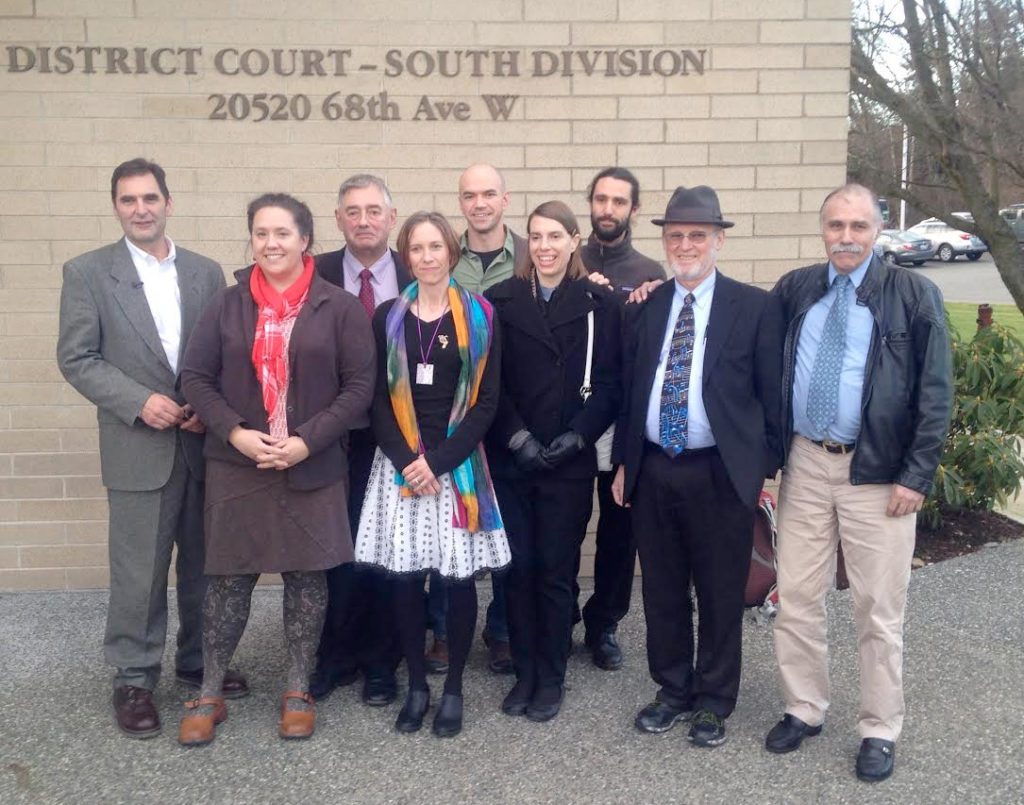The Washington Court of Appeals today ruled against a group of defendants known as the Delta 5, who had attempted to present a climate necessity defense in the criminal trial stemming from their 2014 blockade of coal and oil trains in Washington state. While the court found that the defendants had not provided enough evidence that their protest was justified by the absence of legal alternatives, the opinion left the door open for future necessity defendants by saying that the climate necessity defense may be available in future cases of civil disobedience, including anti-fossil fuel protest.
The ruling is a rebuke to prosecutors who have argued in recent years that protesters should never be able to argue in court that their actions were necessary to avoid climate catastrophe. Rejecting this argument, the Court of Appeals ruled that “[t]he defense may be available where the evidence supports all necessary elements.”
The court narrowly interpreted the requirement that necessity defendants exhaust all reasonable legal alternatives before engaging in civil disobedience, and appeared to ignore the defendants’ evidence showing that available alternatives were ineffective. Future defendants may be able to address this issue by presenting expert testimony about the failure of traditional legal methods to address the climate crisis, as a group of defendants were preparing to do in Boston before prosecutors lowered charges, avoiding a jury trial.
Climate Defense Project presented a first-of-its kind amicus brief in the Delta 5 case arguing that the defendants’ climate necessity argument was supported by the public trust doctrine.
The Court of Appeals’ decision is available here.





